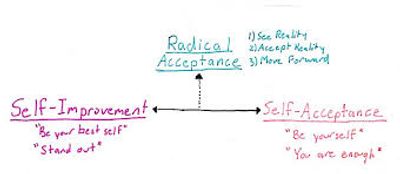Mental Health Activities for College Students
.webp)
By: Kaitlyn DeStefano, B.A., Sophy Kaplan, B.A. & Sony Kehmlani-Patel, PhD.
It's Time to Get Ready to Go Back to School
As the summer closes, the school year is just beginning. For college students, the transition from summer to fall — and the start of the school year — may be challenging or anxiety provoking. What makes this so difficult for college students? What are ways to maintain good health as a college student?
Why Is It Important for College Students to be Aware of their Mental Health?
There is an ongoing mental health crisis on college campuses worldwide. What is it about college that perpetuates this crisis for its students?
College students have a lot on their plates. They are in a new environment, and they need to learn how to live and function as adults on their own, on top of keeping up with their rigorous coursework. During this process, students may feel overwhelmed and struggle to maintain their mental and physical health. This can lead to burnout, declining grades, and strained relationships. In more serious cases, this can contribute to depression, chronic fatigue, and harmful coping behaviors that jeopardize both academic success and personal safety.
Some of the best ways to address struggles around mental health are increasing awareness that these struggles are common and that there are things you can do to help. Through blogs like this, it allows students to become aware of their mental health, understand they aren’t the only one facing these issues and find activities to improve or maintain good mental health as they face life’s stressors.
Mental Health Activities for College Students
1. Schedule Time to Socialize with Friends or with Family.
As we mentioned before, college students have a lot on their plates, so sometimes, finding time to socialize with friends or loved ones can be difficult. It is essential to set aside time to focus on reconnecting with friends and loved ones, especially when facing stress. Some first year students also may find it hard to meet new people or build new connections. Joining clubs, participating in intramural sports, and forming study groups can be a great way to meet people with similar interests. The weekly structure of many of these activities is also a great way to help build socialization into your routine.
2. Pomodoro Technique
The Pomodoro Technique is a time-management method that divides work sessions into 25-minute intervals, with built-in breaks. This is a great way to provide structure to your work sessions –whether for schoolwork, cleaning, or any other task you need to complete.
- Steps:
- 1) Choose a task
- 2) Set a timer for 25 minutes
- 3) Work through 25 minutes with no distractions
- 4) Take a short break for 5 minutes
- 5) After 4 “pomodoros”, take a longer break of 15 minutes

3. Regular Exercise
Exercise has been shown to help boost mood and reduce stress. Exercise is important for your body to keep moving and blow off some steam. However– exercise does not always involve hitting the gym. Exercise can be taking a walk or a jog around the block or around your campus once a day, or even stretching in the morning.
4. Journaling
Journaling is a great creative outlet to have while in college. Journaling is flexible to individual needs, meaning that you can journal whatever you want to your hearts content! Many people use journals to express their emotions through writing or process feelings, while others keep journals to scrapbook memories or interests.
5. Utilizing Mental Health Services
Most importantly, college students need to know they don’t have to do it all on their own. There are many therapists out there who have seen students struggling with the same challenges as you and helped them get back on track.
Many are not aware of the mental health services that their school provides. Many schools have No-Cost Student Counseling Services or another service (either in-person or virtually) that will help assist with their mental health needs. Taking advantage of these services is a great opportunity to get initial therapeutic services and support right through your school. This is a great place to get the first line support you need or explore if you need more specialized support.
If You Are Feeling Overwhelmed
If you or a fellow student have been feeling overwhelmed, know that you’re not alone. Many students go through this. Trying these activities and reaching out for support are positive first steps forward. And if you think more specialized professional support could help, our team is always here to talk.
More Blog Posts
.webp)
OCD and School Refusal

RADICAL ACCEPTANCE
.webp)
Positive Clinical Psychology - Part III

You can experience life again. Let’s take steps together.
At Bio Behavioral Institute, we’re here to be your team and get you back to the life you deserve. Schedule your consultation and take the first step towards a more meaningful life.
Call our office at 516-487-7116 or complete the form to schedule your consultation.
